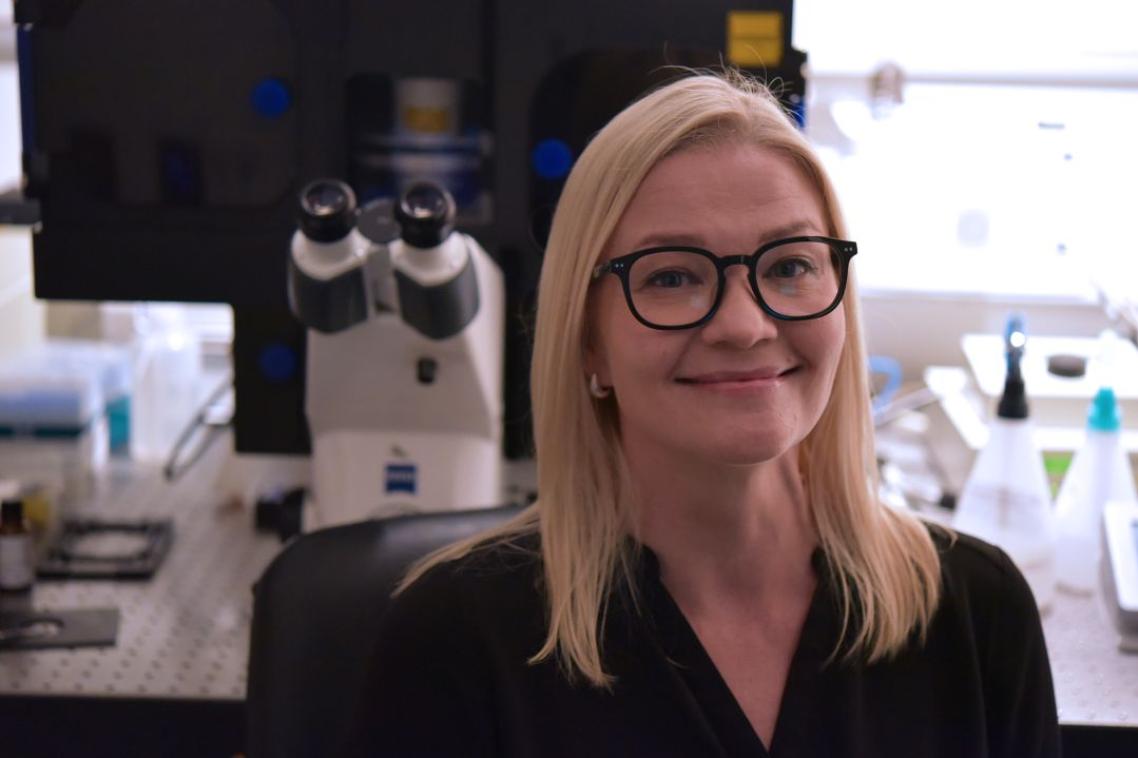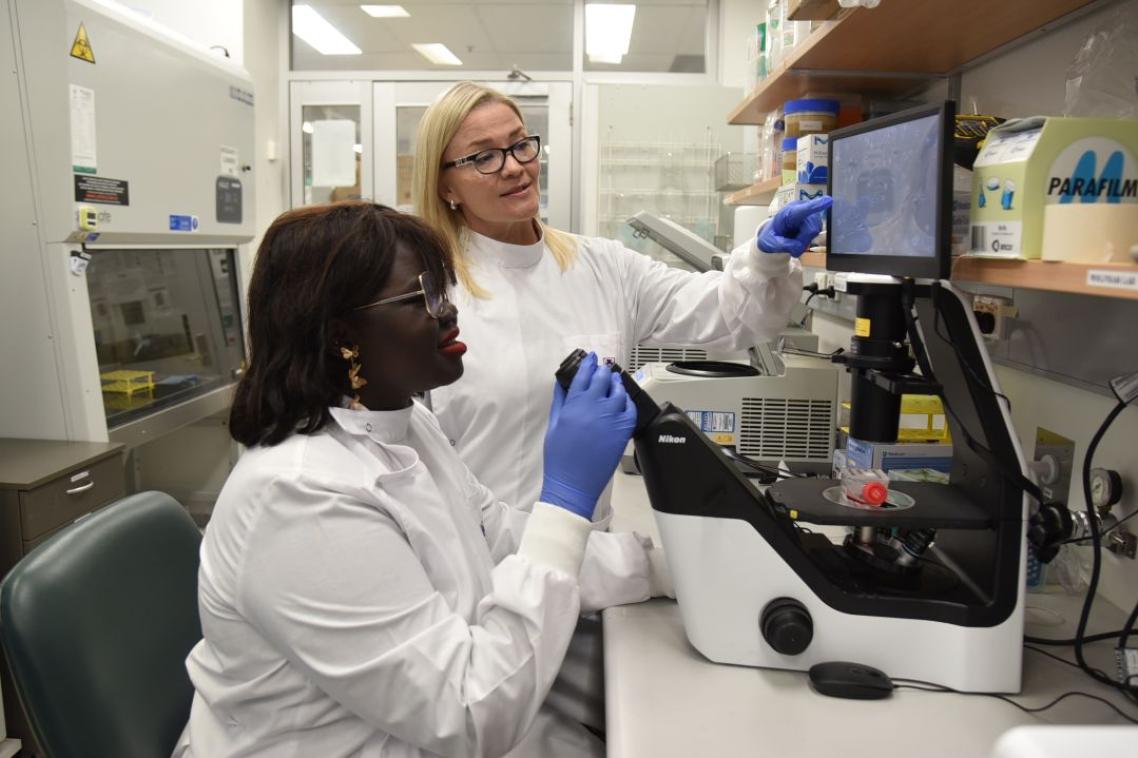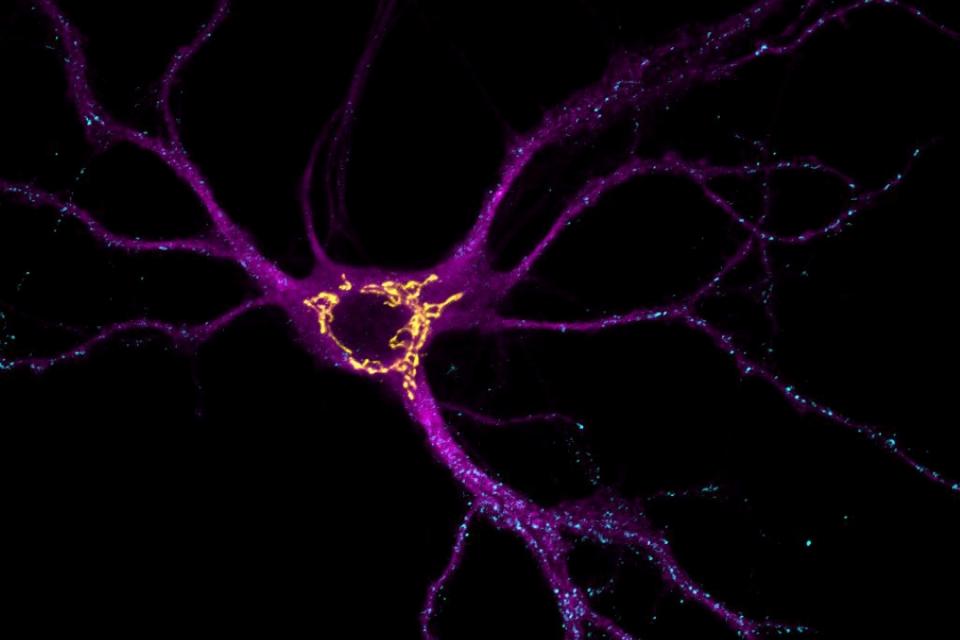Fat particles could be key to treating metabolic brain disorders

UQ researchers found that healthy neurons in the brain produce saturated fatty acids that they use for fuel.
(Photo credit: The University of Queensland )
Key points
- UQ researchers have demonstrated that sugars are not the sole source of fuel for brain neurons
- Dr Merja Joensuu said healthy neurons in the brain produce saturated fatty acids that they use for fuel
- This is good news for a number of metabolic brain disorders and conditions previously thought untreatable
A University of Queensland study led by Dr Merja Joensuu showed that neurons also use fats for fuel as they fire off the signals for human thought and movement.
“For decades, it was widely accepted that neurons relied exclusively on glucose to fuel their functions in the brain,” Dr Joensuu said.
“But our research shows fats are undoubtedly a crucial part of the neuron’s energy metabolism in the brain and could be a key to repairing and restoring function when it breaks down.”
Dr Joensuu from the Australian Institute for Bioengineering and Nanotechnology along with lab members PhD candidate Nyakuoy Yak and Dr Saber Abd Elkader from UQ’s Queensland Brain Institute set out to examine the relationship of a particular gene (DDHD2) to hereditary spastic paraplegia 54 (HSP54).

AIBN researcher Dr Merja Joensuu.
(Photo credit: The University of Queensland )
Dr Joensuu said the loss of DDHD2 gene function was known to disturb the brain’s fat balance, which ultimately heralded the onset of HSP54.
“We discovered that neurons use small fat molecules, called saturated free fatty acids, produced by DDHD2 for energy to sustain neuronal communication,” Dr Joensuu said.
“Understanding the alternative brain fuel could help unlock new and more effective ways to treat energy-related brain disorders and neurodegenerative conditions.”
Dr Joensuu said the research laid the groundwork to develop a potential therapeutic for HSP54, and provides hope for other metabolic brain disorders and conditions previously thought untreatable.

PhD Scholar Nyakuoy Yak and Dr Merja Joensuu say their research could be the missing piece of the puzzle for a number of debilitating illnesses.
(Photo credit: The University of Queensland )
We found that activated fatty acid supplements restored energy production and normal function even in neurons with the faulty DDHD2 gene in animal models, after an increase in sugars had proven ineffective,” Dr Joensuu said.

For decades, it was widely accepted that neurons relied exclusively on glucose to fuel their functions in the brain. This is not the case.
(Photo credit: The University of Queensland)
“This was a huge paradigm shift. It showed that the healthy neurons in the brain produce saturated fatty acids that they use for fuel, and in conditions like HSP54, where this fatty acid energy pathway is faulty, the neuronal energy and damages could be repaired with fatty acid supplements.
“Given the brain’s metabolic vulnerability, and the metabolic changes in conditions like Alzheimer’s disease, this discovery could be the missing piece of the puzzle for a number of debilitating illnesses.”
Dr Joensuu said the next stage of the research is to assess the therapeutic efficacy and safety of the activated fatty acids in preclinical studies, an important step toward clinical trials, and to determine whether this brain energy pathway also plays a role in other metabolic brain diseases.
The research has been published in Nature Metabolism.
Collaboration and acknowledgements
Contributors were based at the University of Helsinki, the University of Oslo, Assiut University, and at -omics data analysis firm i-Synapse. This work was supported by a donation from Bruce and Anthea McBryde.Related articles

Critical brain link could explain how Alzheimer's disease takes hold

Study finds fluoride in water does not affect brain development
Media contact
UQ Communications
communications@uq.edu.au
+61 429 056 139
